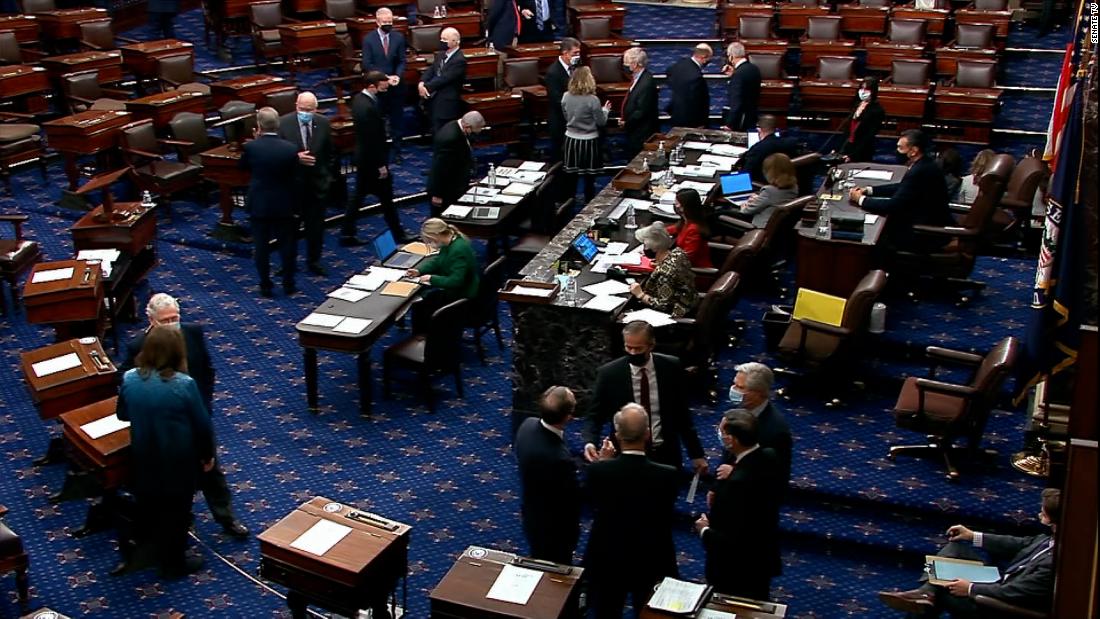The amendment to the stimulus bill would cut payments by $100 but extend benefits an additional month
The new arrangement would also make the first $10,200 worth of benefits tax-free.
This is a significant change from the House bill, which would provide an extra $400 a week through August 29 and continue the two pandemic programs for the same period. The House bill does not contain the tax provision.
But West Virginia Sen. Joe Manchin — the Democrats’ crucial 50th vote — does not yet support the plan, but has been supportive of a Republican proposal to extend $300-a-week federal benefits through July.
Progress on the overall bill paused Friday afternoon as senators negotiated the issue.
Extending special pandemic programs
The Pandemic Unemployment Assistance program provides benefits to freelancers, gig workers, independent contractors and certain people affected by the pandemic, while the Pandemic Emergency Unemployment Compensation program increases the duration of payments for those in the traditional state unemployment system.
Asked about the Senate Dem unemployment insurance agreement, a senior administration official said the White House is “definitely good with it,” and pointed out making the first $10,200 in benefits no longer being taxable was “something the administration had been trying to figure out how to address.”
Racing toward a deadline
The differences in the Senate and House bills, however, are one more issue the two chambers have to work out before they send the final legislation to the President for his signature.
Lawmakers’ self-imposed deadline of March 14 for passing the relief package is fast approaching. That’s when out-of-work Americans will start running out of benefits in the two programs, which will then phase out over the subsequent month. The $300 enhancement also ends next weekend.
Even if lawmakers finish the bill in coming days, some jobless Americans may see a lapse in benefits since it can take a few weeks for state unemployment agencies to program the new provisions into their systems.
CNN’s Manu Raju and Phil Mattingly contributed to this report.
![]()


